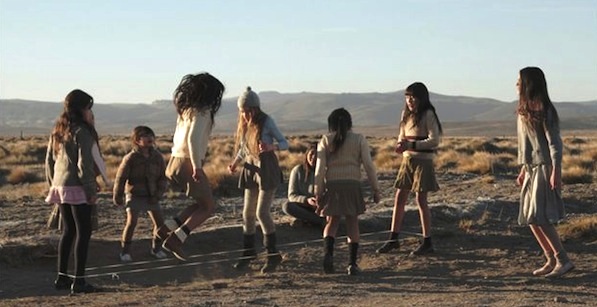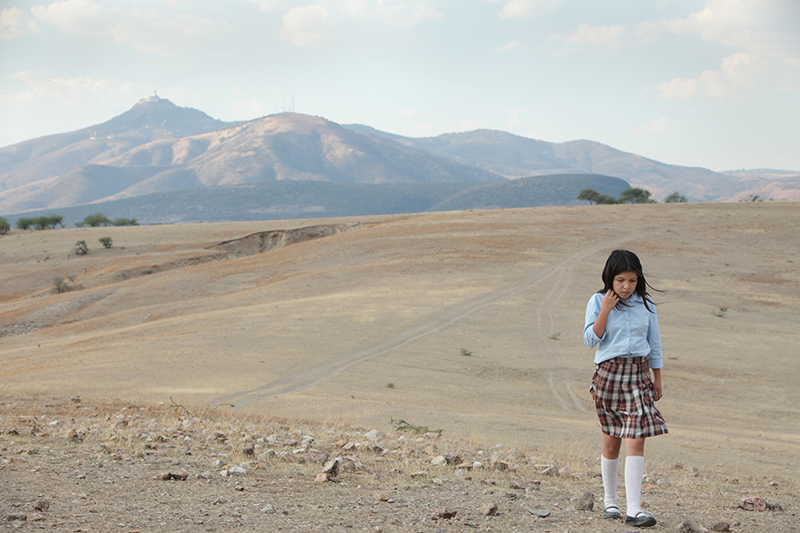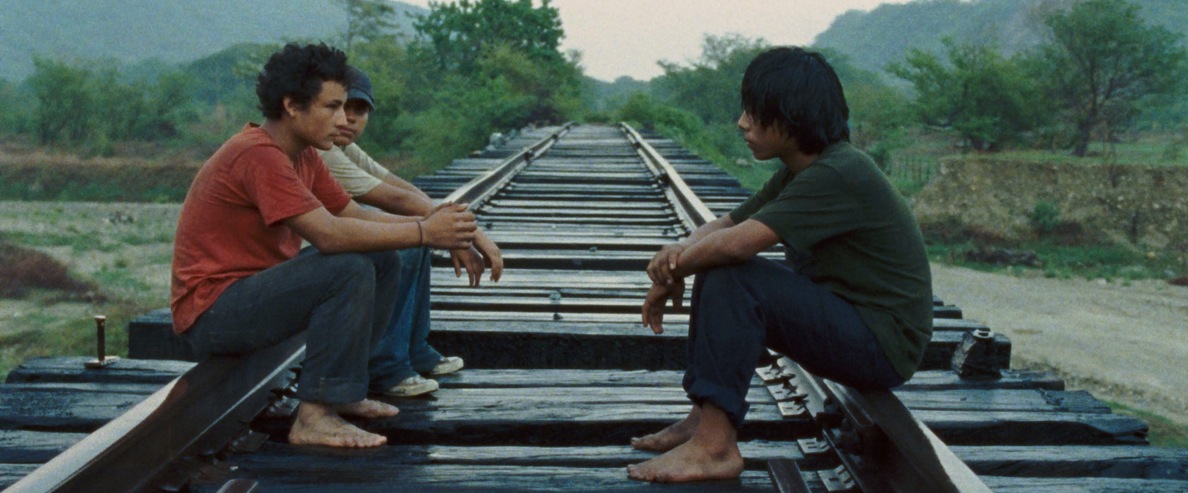The three Latin American films playing in competition at Cannes 2013 are striking for their resistance to easy categorization. Each contains elements of genre (war film, thriller, road movie) but ultimately focuses intensely on the way interpersonal relationships between characters reflect a growing disinterest in national ideology. It seems that no matter the scenario, these films are about characters yearning for a sense of normalcy separate from social concern. Despite their stylistic and thematic differences, it’s interesting to see them as conflicted and flawed variations of the same human struggle to find peace within environments of constant transition.
A film of violent and tender embraces, Amat Escalante’s Heli played in Official Competition early in the festival to mostly negative buzz. As formally rigorous as it is unsettling, the film envisions modern-day Mexico as a wasteland eviscerated by greed and misguided masculinity. The titular character Heli (Armando Espitia) is diligent and family oriented, working a tough factory job to put food on the table for his wife. Daily routine is permanently altered when he accidentally finds a cache of drugs stolen by his younger sister’s boyfriend, a recruit in training for the police force. Heli destroys the narcotics, and in his attempt to do the right thing and separate his family from a dangerous situation, he seals an opposite fate. No matter how hard the characters in Heli try to exist normal and peaceful lives, poisoned institutions suck them deeper into the abyss.
While Heli is assuredly a gauntlet of disturbing imagery and discomforting scenarios, it’s equally interested in the strains of tenderness that coexist with the many cruelties that occur onscreen. Representations of both populate many of Escalante’s pristinely composed frames. Take the motif of holding someone or something, be it a lover, baby or automatic rifle that is essential to the film’s thematic intent. The aggressive placement of characters or vehicles facing each other is then juxtaposed with bodies tangled together in embrace. Escalante sees these conflicting images as indelibly tied to ongoing issues in Mexico pertaining to gender and identity, class and institutional corruption. Yet his characters simply want to be left alone.
Lucia Puenzo’s Wakolda, playing in Un Certain Regard, is less ambitious and scathing than Escalante’s film but equally critical of communal inaction. Set in early 1960s Patagonia, a vast mountainous region pockmarked by pristine lakes and snowy tundra, the film functions as a type of Argentine historiography. The focus of the film is the case of infamous Nazi war criminal Josef Mengele, the psychotic doctor who would experiment on babies and children in his quest to create the master race. Played with brooding menace by Alex Brendemuhl, Mengele is a deceptively voracious sicko who befriends a local family specifically to test her pregnant mother’s unborn twins. He also initiates an equally creepy relationship with twelve-year-old daughter Eva (Nathalia Oreiro), a doe-eyed sharp-tongued girl who falls head over heals for the good doctor.
Hiding behind a surface façade of smooth charm and manipulative rationale, Mengele slowly breaks down the family dynamic to suit his own motives. But this scenario lacks tension. Puenza paints Mengele as somewhere between subtle psychopath and historical monster, yet he is ultimately relegated to a far more one-note characterization. Wakolda has a flair for dramatic cinematography, best seen in the film’s final reel where a seaplane takes off into the dimly lit sky. Framed in extreme low angle, Eva’s body appears gigantic in the foreground looking up in the air as the moving plane grows smaller in the background. It’s one of the few moments where emotion is conveyed entirely through visual means.
La jaula de oro, the debut film from Mexican director Diego Quemada-Diez and also playing in Un Certain Regard, initially feels like a welcome anti-thesis to its melodramatic narrative cousin, Sin nombre. A relentless tale of three Guatemalan immigrants trekking through Mexico by train to cross the border into the United States, the film is wonderfully cyclical in the early going. Obstacles, diversions and setbacks of massive proportions limit the trio from moving forward very far, pushing them south to try the journey all over again. While the film revels in this structure for far too long, it does exhibit a keen awareness for the key events that suddenly strip away all sense of safety for people on the run.
Like most border films, the volatile and serpentine trajectory of La Jaula de Oro is essentially a quest by its characters to start anew and form a new steady existence. Thematically, this nicely connects with Heli’s desperate but futile attempt to retain a semblance of family after experiencing his own atrocities, and Mengele’s desire to create an entire population defined by sameness and perfection. One could argue, then, that all three films, while problematic efforts by young directors, are each desperately trying to make sense of this specific form of personal malaise.
For Fandor films that have played previous Cannes Film Festivals, visit our Cannes Festival page. Film Society of Lincoln Center’s Daily Buzz features live podcasts from Cannes, presented by Fandor.






